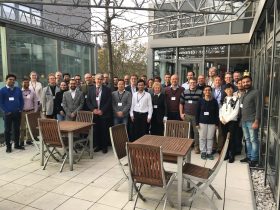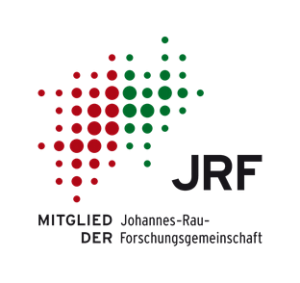Workshop “Sensing with graphene and 2-dimensional materials” was held in Aachen with great success
The workshop “Sensing with graphene and 2D materials” was held on 5th to 6th of November in Aachen with great success. It is financially supported by the German Federal Ministry of Education and Research (BMBF) in the frame of the international bilateral project between Lviv Polytechnic National University in Ukraine and AMO GmbH.
 Sensing is a hot topic in the material and electrical engineering research field. Especially for the applications in health care, sensor networks for the internet of things (IoT) and high speed data communication, different kinds of sensors with high performance are required. Graphene and 2D materials are very suitable for sensor applications since they are naturally sensitive to the surrounding environment or any physical changes. In the course of the workshop, different aspects of
Sensing is a hot topic in the material and electrical engineering research field. Especially for the applications in health care, sensor networks for the internet of things (IoT) and high speed data communication, different kinds of sensors with high performance are required. Graphene and 2D materials are very suitable for sensor applications since they are naturally sensitive to the surrounding environment or any physical changes. In the course of the workshop, different aspects of  sensors based on graphene or 2D materials were discussed by experts in the fields, such as magnetic sensors, mechanical sensors, chemical sensors, RF power sensors, biosensors and so on. Besides, the materials synthesis, process technology, system integration were also discussed, since they are essential for large-scale applications. Apart from the presentation, a lot of discussion was also going on at the poster session. “This workshop gives me a great overview to the sensor field which I was not familiar with before since I am a physicist working basically on the fundamental research. In the mean time all the talks are of very high quality and also encouraging since they let me see so many application possibilities of graphene and 2D materials. I enjoyed this workshop a lot.” said Dr. Sayanti Samaddar, a Humboldt Postdoctoral Fellow from the RWTH Aachen University.
sensors based on graphene or 2D materials were discussed by experts in the fields, such as magnetic sensors, mechanical sensors, chemical sensors, RF power sensors, biosensors and so on. Besides, the materials synthesis, process technology, system integration were also discussed, since they are essential for large-scale applications. Apart from the presentation, a lot of discussion was also going on at the poster session. “This workshop gives me a great overview to the sensor field which I was not familiar with before since I am a physicist working basically on the fundamental research. In the mean time all the talks are of very high quality and also encouraging since they let me see so many application possibilities of graphene and 2D materials. I enjoyed this workshop a lot.” said Dr. Sayanti Samaddar, a Humboldt Postdoctoral Fellow from the RWTH Aachen University.
The workshop was also supported by Work Package 6 (Sensors) of Graphene Flagship, especially Sanna Arpiainen (VTT Technical Research Centre of Finland), Georg Duesberg (Bundeswehr University Munich), Peter Steeneken (Delft University of Technology) and Max C. Lemme (RWTH Aachen University).




